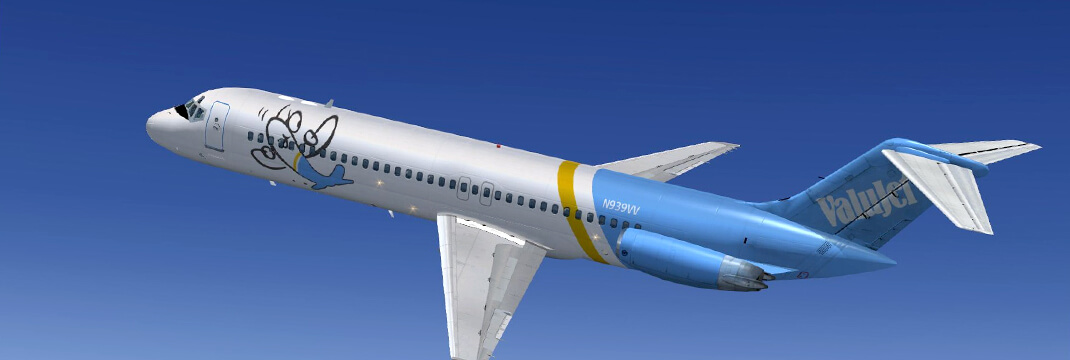
Every person is responsible for the decisions he/she makes. The evaluation of those decisions is the task of morality, as the system of intersubjective behavioral and value orientations that regulate humans’ interactions, and classic ethical doctrines, which help a researcher to take into consideration the various ethical aspects of the particular phenomenon. The Valuejet Flight 592 case is a demonstrative example of such a controversial ethical case that requires a thorough philosophical examination. Like the precedent that occurred as the result of a person’s wrong decision, it is the object of analysis of this paper based on the utilitarian ethical doctrine.
The Valujet Flight took place in 1996 and tragically ended because of the improper secure of canisters with oxygen that should not have been on the airplane and have fired up accidentally. Therefore, according to Fleddermann, “Valujet accident wasn’t a flaw in the airplane’s design, but rather was attributed to a series of mistakes in handling and securing of the oxygen canisters” (75). The occurrence of this tragedy was caused due to the humans’ actions, in particular, the unprofessional decisions of engineers that did not ensure the safety of the passengers and the stuff of the airplane and even people, who could become the victims of the aircraft crash. Thus, this case study raises the moral problems of responsibility, which has to guarantee the safety of others and the professionalism that is the key to the realization of the moral vocation of responsible engineers.
It may be fruitful to apply the utilitarian ethical doctrine to the analysis of this case study to reveal the moral problems and elaborate on the possible solutions and verdict. Utilitarianism is “an ethical theory that focuses on harm and benefit of happiness and unhappiness to morally significant beings” (Birsch 84). It is a kind of consequentialist theory that aims to evaluate the results of humans’ actions, according to their positive results, which bring about happiness for as many people as possible. Therefore, this doctrine is an example of empirical ethical teaching that stresses and evaluates not the intentions of moral subjects, but the direct consequences of their moral behavior.
Invite your friends and get bonus from each order they
have made!
According to the founder of this approach, Bentham, an action corresponds to the principle of utility “when the tendency it has to augment the happiness of the community is greater than any it has to diminish it” (15). Therefore, an individual as a member of the community has to always think not only about personal profits, but also about the communal good, which appears as the total sum of individual’s happiness. Utilitarianism, as the theory, is aimed at the maximization of happiness as pleasures and avoiding sufferings points to the necessity to consider the society as the whole to apply Bentham’s technique of happiness calculation (Burns).
If to apply this approach to the analysis of the Valujet flight case study, it becomes evident that the tragic end of the flight contradicts the core principle of the utilitarian ethical doctrine that stresses that “an act is right if and only if it would have best consequences, that is, consequences at least as good as those of any alternative act open to the agent” (Singer 95). Actions taken by the engineers, who put the canisters with oxygen on the airplane, are immoral because the professionals did not realize the principles of their ethics that presupposes the prevention of the accidents and ensures the safety of the public.
All circumstances point that the engineers could have thought about the maximization of their personal profit and happiness via the enlargement of their free time, as the result of low-quality and fast work. They did not pay much attention to the importance of the appropriate package of the dangerous substances and, thus, did not lose their personal time maximizing pleasure. At the same time, such false attitude towards the realization of the professional charges contradicts the central idea of utilitarianism because such behavior does not take into account the happiness of other people who depend on the actions of the engineers and presuppose their professionalism. The ultimate goal is to make as many people happy, as it is possible, but this was not a moral orientation for the engineers in their actions.
The analysis of this case study provokes the speculations about what engineers should have done to prevent the tragedy, save the lives of the passengers and the stuff of the flight, and, thus, maximize the common happiness. In this situation, the utilitarian ethics stress on the necessity to avoid the risk – the “possibility of suffering harm or loss” (Fleddermann 75), which is often identical to dangerous situations. As the consequentialist ethics, utilitarianism does not evaluate the actions according to the intentions of their agents but refers to their results. However, in my opinion, it is wrong to consider the avoidance of risk to be the full answer to the question about the prevention of the given ethical case.
The avoidance of risk has to be the logical consequence of the professionalism as the fundamental condition of the moral behavior because “minimizing risk is often easier said than done” (Fleddermann 78). The pilot, copilot, and the ramp agent, as well as engineers, who prepared the airplane for the flight, had to identify the improper cargo and remove it from the plane, thinking about minimization of risks not only for themselves but also for the passengers. The incapacity to identify the danger and apply the professional skills in the complicated situations point to the complex character of the problem that could not have taken place, in case of the mutual efforts and avoidance of the mistakes that made the accident inevitable.

Top Writer Your order will be assigned to the most experienced writer in the relevant discipline. The highly demanded expert, one of our top 10 writers with the highest rate among the customers.
Hire a top writer for $4.40Therefore, the moral subjects in this situation have to follow the code of their professional ethics, be able to recognize the danger, apply ethical problem-solving techniques, consider the possible future consequences of different scenarios of action, choose the one with the minimum of risks not only to individuals, but also collective, and take the responsibility for their behaviors. It is significant because even though utilitarianism as the opposition to the deontological ethics denies the necessity for the moral subject to consider the humanity in their moral intentions, it is also significant to think about other people in the context of the maximization of happiness.
To conclude, the Valujet Flight is a demonstrative example of the controversial ethical case study that raises the issues of responsibility, professionalism, and the common good. As the tragic accident that took the lives of many people, it was a result of several mistakes of the engineers and the stuff that is the wrong decisions of individuals that could have acted otherwise. The application of the utilitarian ethical doctrine to the analysis of this cases study reveals the necessary orientations that people have to possess in order to act morally. Among them are the presupposition of the common good, maximization of individual and collective happiness, and the avoidance of risks as the possible losses and sufferings. If the engineers, pilot, copilot, and the ramp agent had considered the consequences of their actions and applied the professional skills to the analysis of the situation, the tragedy would not have happened and people would not have lost their lives.



